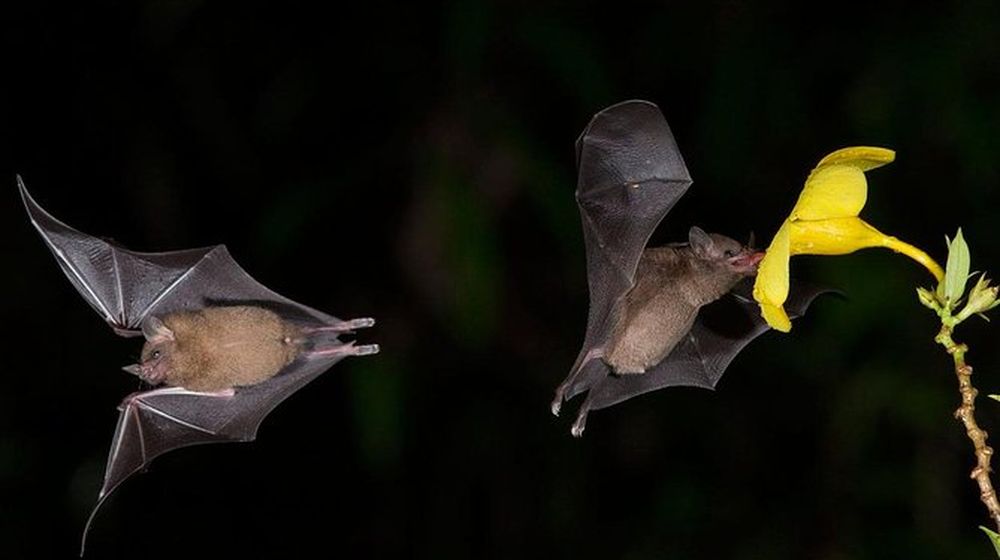According to a Brazillian news outlet, Brazil’s state-run Fiocruz Institute conducted a late-night scavenger to collect and study viruses present in wild animals, including bats, which many scientists believe are heavily linked to the COVID-19 outbreak. Simply put, the researchers were on a mission to capture bats and help prevent the next pandemic.
ALSO READ
Private Sector Can Now Import COVID-19 Vaccine
Reports from the Brazilian Associated Press reveal the nighttime outing was conducted sometime during November. As the following video shows, the Brazilian team of researchers can be seen racing for a remedy:
provider: youtube
url: https://youtu.be/Mei76rLOGDY
src in org: https://www.youtube-nocookie.com/embed/Mei76rLOGDY?feature=oembed&modestbranding=0&showinfo=0&rel=0&autoplay=1
src in mod: https://www.youtube-nocookie.com/embed/Mei76rLOGDY?modestbranding=0&showinfo=0&rel=0&autoplay=1
src gen org: https://www.youtube-nocookie.com/embed/Mei76rLOGDY
After the research video log was uploaded on the internet, viewers around the world took it as a way to contemplate the next global outbreak. Although this viewpoint is well-founded, it’s a bit too soon to look ahead while the world still grapples with COVID-19.
However, the research team suggested that without savvy intervention beforehand, another novel virus could easily appear from select animal to animal hosts. Perhaps the next time, a new virus could appear and spread across the world like wildfire.
Meanwhile, the Brazilian team of researchers woke the bats from their lopsided slumber to gather samples for tentative experimentation. The Associated Press quoted the researchers’ viewpoint on bats and the relative significance of their oddly dysfunctional but strong immune system. Raina Plowright, an epidemiologist from Montana State University, said,
The secret is that bats have unusual immune systems, and that’s related to their ability to fly
Plowright and other scientists believe evolution has helped bats recover from the stress of flying, and also provides them with extra protection against pathogens. A virologist at McMaster University Canada said,
Bats seem to have evolved a collateral benefit of flight — resistance to deal with some of the nastiest viruses known to science
While scientists are busy unraveling the mystery, two leading theories exist that suggest bats may have evolved an efficient DNA repair mechanism, or their bodies may tightly regulate inflammation triggers and not overreact to infectious viruses.
How climate and a play of ignorance could drive mankind towards the cataclysmic
Bats and other animals that carry pathogens don’t inherently pose a risk to humans unless conditions point towards a spillover event. A disease ecologist at the University of California, Berkeley, Cara Brook, said, “The virus has to come out of the host for us to get infected”.
Here’s some bad news. Increasing destruction and fragmentation of habitats across the world especially biodiverse areas like tropical forests means “we are seeing higher rates of contact between wildlife and humans, creating more opportunities for spillover,” she added.
This is why the Brazilian researchers chose Pedra Branca park for the research work. Hailed as one of the world’s largest forests in urban land, it offers constant interaction of wild animals with thousands of humans and domestic animals in surrounding communities. The scientists are studying not just bats, but also small primates, wild cats, and domestic cats in homes with confirmed COVID-positive individuals.
ALSO READ
PSX Crosses Pre-COVID Level After a Surge of 795 Points
In a highly connected world, an outbreak in one place endangers the entire globe as COVID-19 did. The Brazilian team is just one of many worldwide research teams racing towards a remedy to avoid the risk of another deadly pandemic.
Whether the goal is to halt the spread of known zoonotic diseases or to reduce the risk of new ones emerging as pandemics, the strategy remains the same i.e. reduce contact between humans and wild animals.

























